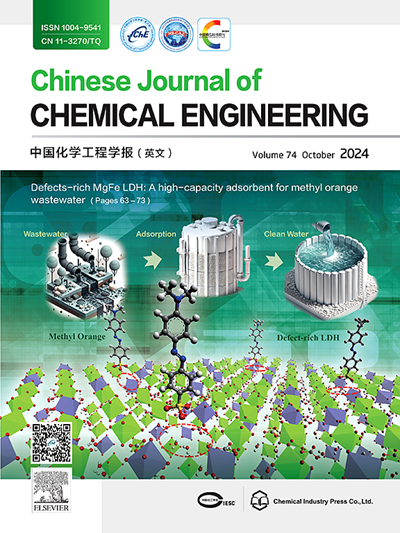Effect of elevated pressure on isobaric molar heat capacity
IF 3.7
3区 工程技术
Q2 ENGINEERING, CHEMICAL
引用次数: 0
Abstract
Isobaric molar heat capacity affected by pressures for non-ideal gases is calculated theoretically at specified temperatures by means of gaseous equations of state, i.e. Redlish-Kwong (RK) Equation, Soave-Redlich-Kwong (SRK) Equation, Peng-Robinson (PR) Equation, Virial Equation, coupled with Romberg numeric integral via solving the key obstacle (∂V/∂T)p, and integral (∂2V/∂T2)p. As an example, methane's Cp is calculated at constant 300 K but 1 MPa & 10 MPa. The calculation results show that less than 2% relative errors occur in comparison with literature values at any specified temperatures and pressures if no phase change survives at elevated pressure P2 and temperature T, or when specified temperatures are greater than critical temperatures in spite of elevated pressures. However, greater errors would be present if gases were considered to be ideal, or if temperatures are lower than critical temperatures at elevated pressures (>10 MPa), because Cp is the function of both temperature and pressure. In particular, elevated pressures have significant effect on Cp.
高压对等压摩尔热容的影响
利用气体状态方程,即redish - kwong (RK)方程、sove - redlich - kwong (SRK)方程、Peng-Robinson (PR)方程、Virial方程,结合求解关键障碍(∂V/∂T)p的Romberg数值积分和积分(∂2V/∂T2)p,对非理想气体在特定温度下受压力影响的等压摩尔热容进行了理论计算。例如,甲烷的Cp是在恒定300 K, 1mpa &下计算的。10 MPa。计算结果表明,在任意温度和压力下,如果在压力P2和温度T下没有发生相变,或者在压力升高时温度大于临界温度,与文献值相比,相对误差小于2%。然而,如果气体被认为是理想的,或者如果温度低于高压下的临界温度(> 10mpa),则会出现更大的误差,因为Cp是温度和压力的函数。特别是,血压升高对Cp有显著影响。
本文章由计算机程序翻译,如有差异,请以英文原文为准。
求助全文
约1分钟内获得全文
求助全文
来源期刊

Chinese Journal of Chemical Engineering
工程技术-工程:化工
CiteScore
6.60
自引率
5.30%
发文量
4309
审稿时长
31 days
期刊介绍:
The Chinese Journal of Chemical Engineering (Monthly, started in 1982) is the official journal of the Chemical Industry and Engineering Society of China and published by the Chemical Industry Press Co. Ltd. The aim of the journal is to develop the international exchange of scientific and technical information in the field of chemical engineering. It publishes original research papers that cover the major advancements and achievements in chemical engineering in China as well as some articles from overseas contributors.
The topics of journal include chemical engineering, chemical technology, biochemical engineering, energy and environmental engineering and other relevant fields. Papers are published on the basis of their relevance to theoretical research, practical application or potential uses in the industry as Research Papers, Communications, Reviews and Perspectives. Prominent domestic and overseas chemical experts and scholars have been invited to form an International Advisory Board and the Editorial Committee. It enjoys recognition among Chinese academia and industry as a reliable source of information of what is going on in chemical engineering research, both domestic and abroad.
 求助内容:
求助内容: 应助结果提醒方式:
应助结果提醒方式:


